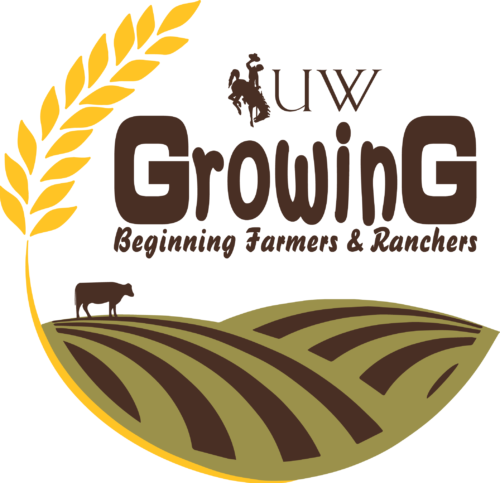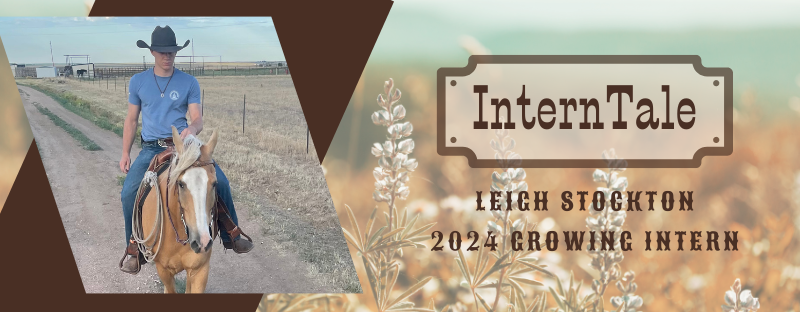The Battles of Ranching
#bfrdpwy #aginternship #RightRisk
This week was a big one for the war on prairie dogs. Two full days consisted of me running out to the various towns armed with binoculars, poison, and a shovel and killing every rodent that dared to pop out of the ground. The tactic I found most effective was best described as hit-and-run: I’d come up on the town astride a 4-wheeler, moving slow, scouting as I went through the binoculars. I’d spot a prairie dog or a group of them, maintain eye-contact with the holes as I approached, and plant my poison in the method that I’d been taught a few weeks ago (water, poison tablets, a splash more water, cover the hole). After I got all the identified holes, I’d hop back on the 4-wheeler and drive up the hill a ways and wait. After ten to fifteen minutes, almost without fail, a few of the vermin would pop their heads out and I’d repeat the process until I felt I had got all I could in the area, at which point I’d move on to the next.
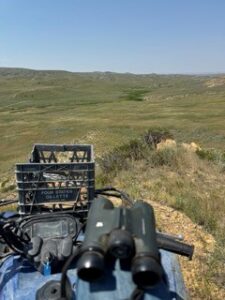
The week was also a big one for one-on-one questions with my host—he and I hauled cattle, fixed a gate, and went to the Sheridan Wyo Rodeo together, providing ample time to pick his brain. Some of the big topics we talked about were wrapped up in keeping the ranch and in maintaining the range. He told me that a big threat to family ranches is the government, both through agencies and through policy. One of the biggest problems many ranchers run into is the death tax (and the inheritance tax). This tax makes it very difficult to pass the land on to the next generation because most ranches have their wealth tied up in the land, with very little cash to spare—therefore, when that death tax comes in, your options are often limited to selling part of the ranch or losing it all.
The other big topic was the concept of “no use is good use.” Mr. Kane explained to me that this is an environmentalist mindset centering on limiting use of land by ranchers and fencing it off from them under the hypothesis that it’s healthier for the land to not be grazed. He told me that what this often does is choke out the grass in the area as it grows in abundance—after that, the dead grass dries up and eventually you’ll get one hell of a wildfire to rip through the area.
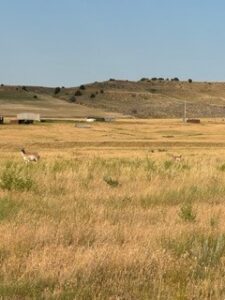
Not all ranchers are good stewards, but all good ranchers are great stewards; allowing them to manage the land is beneficial to all parties, wildlife included. Those who are invested in the health of the land maintain both the fauna and the flora and really help the area to thrive. The no-use method might have some ground to stand on if there were still bison in the area to do what the cattle of today do for the land, but with bison gone, cattle are the best option to keep the grass from killing itself.
One of the ideas that my host dropped that really stuck with me was that all good ranchers are good cowboys, but not all good cowboys are good ranchers; essentially, the cowboy method isn’t always the most efficient or the best for the job at hand. The particular instance he was referencing was roping calves for doctoring, particularly in pneumonia cases. A big part of me wants to disagree, but after looking at it for the last week from every angle I can think of, I have to admit that he’s right. I think that roping still has a place in ranching—it’s efficient and effective when used correctly and it can be your only option in certain terrains that might limit a side-by-side’s mobility. That said, roping a bull is hard on your horse, and as Mr. Kane said, the last thing a calf with pneumonia needs is a rope around his larynx. I think there’s a good balance to be found with this, just the same as with range management—rope when you can, doctor by rifle when you have to.
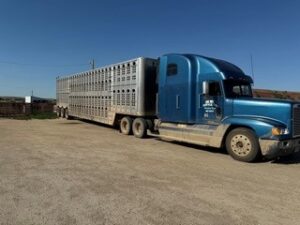
Moving into the future, I’d like to really take my host’s words to heart and try to maintain the balance that nature needs to thrive. Everything out here is a balancing act, from litter levels (how much soil you can see through the ground foliage) to cattle numbers to water. Learning how to walk that tightrope is, I think, the key to being a good steward of the land, which is one of my driving factors for getting into ranching.
Submitted by: Leigh Stockton
Edits by: GrowinG Internship Team
